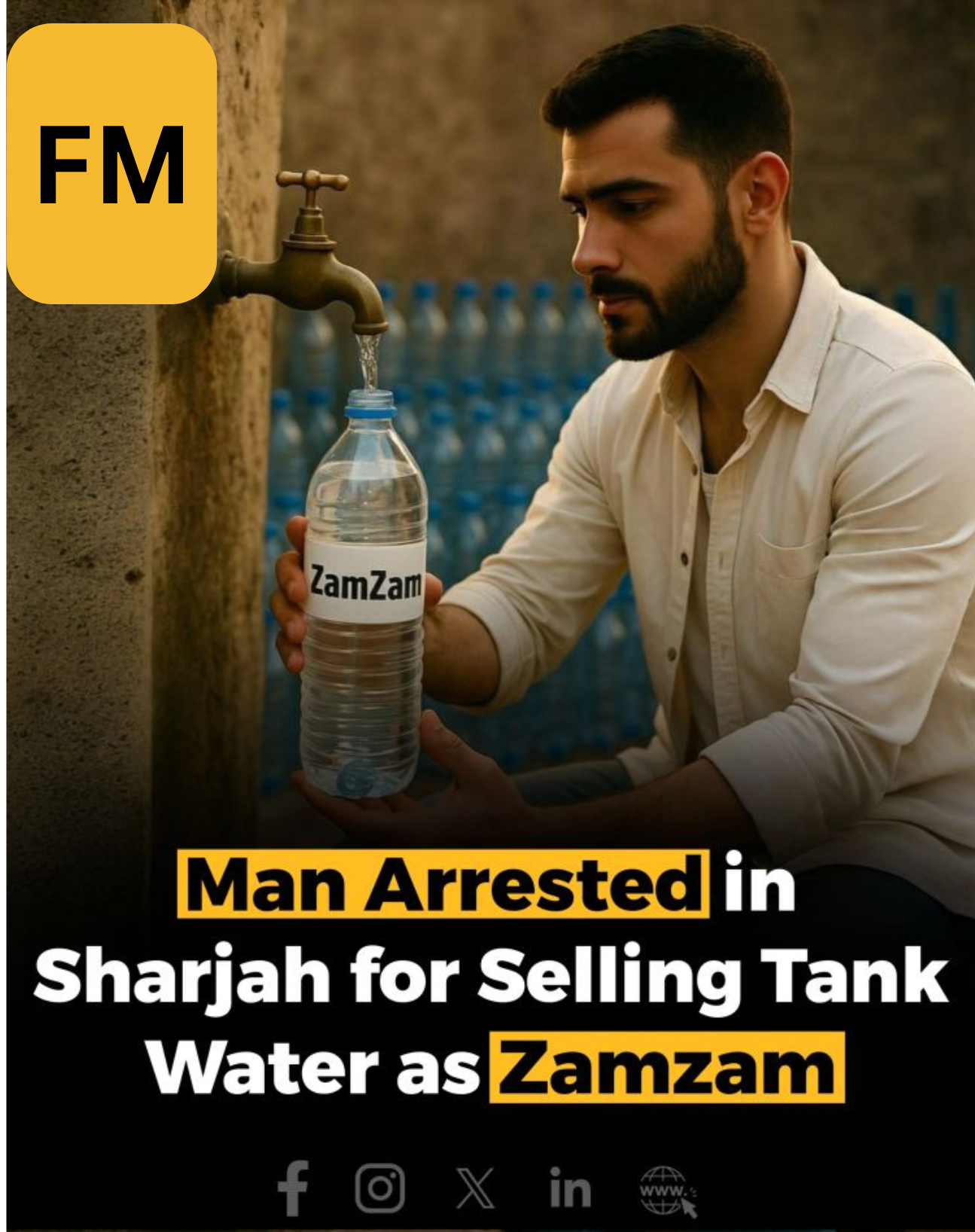In a shocking incident in Sharjah, authorities arrested a man who was found guilty of deceiving the public by selling ordinary tank water as Zamzam water at inflated prices. The individual operated a fraudulent bottling facility out of a residential property, where he bottled water under unhygienic conditions and falsely marketed it as the sacred water sourced from the Zamzam well in Makkah, Saudi Arabia — considered holy by millions of Muslims worldwide.
The accused ran the operation by creating counterfeit labels to give the appearance of legitimacy and authenticity. These labels were made to closely resemble those of genuine Zamzam water bottles, misleading consumers into believing they were purchasing a sacred and blessed product. The man exploited the high demand for Zamzam water, particularly among devout Muslims who often use it for spiritual and religious purposes, including prayer, healing, and special occasions.
Authorities discovered that the accused had gone to great lengths to appear credible. He misused the credentials of a licensed commercial entity to issue fake invoices and other documentation, adding a layer of false legitimacy to his operation. This tactic made it more difficult for ordinary consumers to detect the fraud, especially as the products were being actively promoted through social media platforms. Many unsuspecting buyers were duped into paying a premium for what they believed was Zamzam water, unaware that it was in fact ordinary, untreated tank water.
The bottling operation was conducted in extremely unsanitary conditions, posing potential health risks to consumers. The facility lacked proper hygiene standards, water purification systems, and regulatory approvals. Upon inspection, authorities found large quantities of mislabeled bottled water ready for distribution, as well as printing equipment used to produce fake labels and invoices.
Once the operation was uncovered, law enforcement acted swiftly. The makeshift bottling facility was shut down, all counterfeit products were seized, and legal action was initiated against the perpetrator. Authorities are currently investigating the full extent of the scam, including potential accomplices and the total number of people affected.
In the wake of this incident, the Sharjah authorities have issued a strong warning to the public. Residents are urged to purchase only from licensed and verified sellers, especially when it comes to religious or consumable products. They are also encouraged to report any suspicious activity or products that may appear fraudulent. Official channels such as the Department of Economic Development and consumer protection hotlines are open for public reporting.
This case serves as a reminder of the importance of vigilance when purchasing products, particularly those associated with religious significance. It also underscores the role of social media in spreading both authentic and fraudulent businesses and highlights the need for stricter regulation and monitoring.
Authorities continue to investigate the matter and are committed to bringing all those involved to justice. Consumers, in the meantime, are advised to remain cautious and prioritize safety and authenticity when making purchases, especially of spiritual or health-related products.

